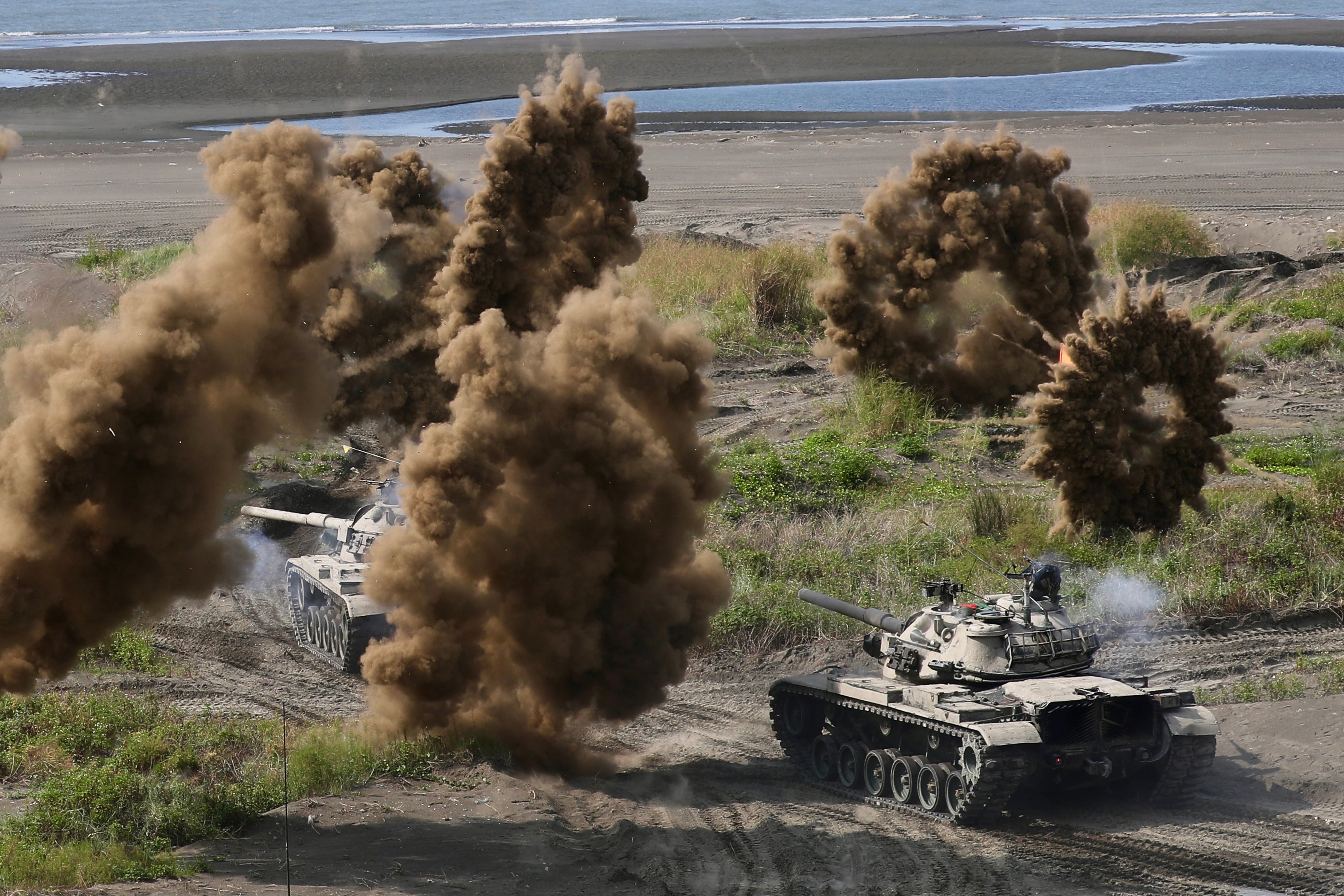Improving defence capabilities is key for Taiwan to line up with Aukus, say experts
As Aukus is expected to have some effect in countering China’s military expansion in the Indo-Pacific region, experts think Taiwan needs to strengthen its defence in order to remain in step with regional collaborations, experts tell William Yang


A day after the US, UK and Australia introduced the new security pact Aukus, ministers at the annual US and Australian ministerial consultation (Ausmin) expressed their mutual intention to improve ties with Taiwan, characterizing it as a ‘leading democracy’ and a critical partner for both Washington and Canberra.
On Thursday, the new Aukus security pact triggered a harsh response from China, as the foreign ministry spokesperson Zhao Lijian criticised the US, Australia and UK for having “obsolete cold war zero-sum mentality and narrow-minded geopolitical concepts.” He said the decision to allow Australia to acquire nuclear technology was an example of extremely irresponsible double standards.
Taiwan welcomed the support from Washington and Canberra on Friday and reiterated its determination not to let any country fight for it. “Building on the solid existing foundations, our government will continue to work closely with the United States, Australia and other countries with similar ideas to expand Taiwan’s international space, safeguard democracy and shared values, and a rules-based international order, and jointly safeguard peace, stability and prosperity in the Indo-Pacific region,” said Joanne Ou, the spokesperson of Taiwan’s Foreign Ministry.
Aukus members won’t come out and say it, but I think the Taiwan issue is front and centre of what’s driving this
While many view Aukus as a countermeasure to China’s growing aggression in the Indo-Pacific region, experts have different views about the intention behind the new security pact and whether issues related to Taiwan are prioritised by the Aukus member states.
“I’m not sure that the formation of Aukus is specific to Taiwan, and I think the three leaders were pretty explicit that this is not specifically targeting China,” Drew Thompson, a former Pentagon official responsible for managing relations with China and Taiwan, told The Independent.
“The alliance is there to further US national interest as well as the interests of those allies. If China puts itself forward as the future hegemon of the region, of course, those alliances are going to be a factor for them. I don’t think those alliances or upgrading those alliances is specifically targeting China,” he added.
However, Kharis Templeman, a political scientist at Stanford University’s Hoover Institute, thinks that issues related to Taiwan are important to member states of Aukus, as he believes they are what could draw the US and China into a conflict.
“They won’t come out and say it, but I think the Taiwan issue is first and foremost,” said Templeman. “It’s front and centre of what’s driving this. I can’t imagine any other issue actually drawing the US and China into a conflict.”
While Templeman views the new security pact as a major step towards enhancing collective deterrence against China, he acknowledges that Taiwan remains a tricky issue for other US allies in the region since none of them have diplomatic ties with Taiwan, and they don’t recognise Taiwan as a country.
“If there were a conflict to start today, I can imagine the US might still be alone in that conflict. The way forward and to get better deterrence is to integrate our security approaches, especially with the Australians,” Templeman told the Independent. “This ties them potentially having to cooperate with the US in the Taiwan contingency in a way that they weren’t committed to before.”
The alliance is there to further US national interest as well as the interests of those allies
Thompson says that the new network is allowing Australia to become a major player in the East China Sea and Northeast Asia, where Canberra has considerable trade and economic interests. “Building a really impactful and strategic capability like a nuclear submarine basically puts Australia in the big leagues,” he said. “This is having a strategic military influence in the western Pacific.”
However, both Thompson and Templeman agree that there is more work that Taiwan needs to do in order for its role to align with the interests of Aukus member states. “Taiwan needs to dramatically increase its defence spending, and it needs to take an all-of-society approach to the existential threat that Taiwan as a society faces,” Thompson said.
“It needs to transform its military intelligently with those increased resources, taking advantage of asymmetric strategy and investing heavily in survivable asymmetric capabilities. It should avoid spreading its defence spending so thin amongst high-end US-manufactured weapons that have a low chance of survivability,” he added.
Templeman says the thing that Taiwan can do is to reassure all countries in the region by stepping up its commitment to their defence. “Taiwan needs to have serious conversations about implementing a robust reserve force system,” he said. “Rolling back the decision of phasing out of the conscription is one possibility. If the current administration is serious about revamping the recruitment and retention of troops, now is the time to do it.”
Templeman points out that while Taiwan has talked a good talk about strengthening its defence so far, there isn’t a lot of evidence that proves Taipei’s defence planning for the medium and long term really takes into account the new situation “where they are not going to be able to fight plane for plane and make that trade-off across the Taiwan Strait.”
“There is already talk of deepening military exchanges between Taiwan and these other partners; some of that may already be going on,” he added. “That’s really out of Taiwan’s hands as it depends entirely on what the other countries in Aukus are comfortable with.”






Join our commenting forum
Join thought-provoking conversations, follow other Independent readers and see their replies
Comments